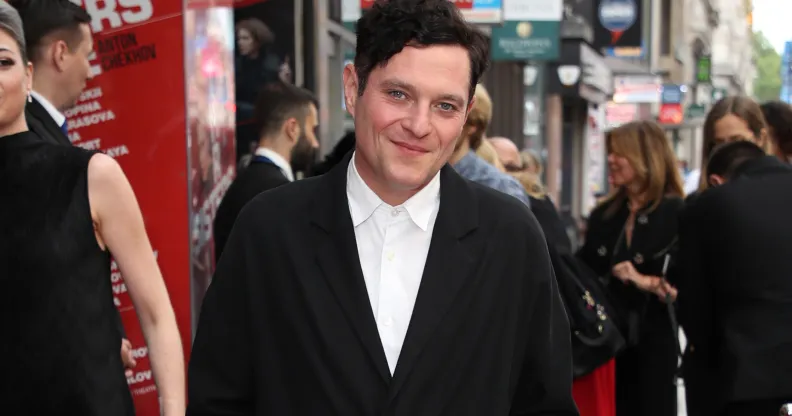Straight actor Mathew Horne can’t see the problem with singing a homophobic slur in Gavin and Stacey

Gavin and Stacey actor Matthew Horne (Mike Marsland/WireImage)
Gavin and Stacey actor Mathew Horne has defended the inclusion of an anti-LGBT+ slur in the show’s Christmas special.
The show faced a flood of viewers complaints over a scene in the Christmas episode saw characters singing along to “Fairytale of New York”.
The track includes the infamous line “You scumbag, you maggot, you cheap lousy faggot” – and while singer Kirsty MacColl decided to drop the homophobic slur from live performances prior to her death in in 2000, Gavin and Stacey opted to sing the original lyrics in full.
Matthew Horne claims faggot ‘was appropriate to use’.
Speaking to Metro, Horne, who plays the titular role of Gavin Shipman, repeated the BBC’s claim that the word “faggot” is not intended to be homophobic slur.
He told the newspaper: “I mean, that word which is in the song, it doesn’t mean what it means today. I’m not in a position to comment on that, I didn’t choose to use the song.
“The song is a well known and well-loved song that has been used at Christmas time for many, many years. We felt it was appropriate to use the song in the show.
“That word etymologically means different things, it’s a shame people were offended by it.”

Matthew Horne poses in the winners room during the National Television Awards 2020 at The O2 Arena on January 28, 2020 in London, England. (Gareth Cattermole/Getty Images)
More than 900 people complained over the uncensored slur in the pre-watershed comedy special, which aired at 8pm on Christmas Day.
BBC claims it’s OK to shout ‘faggot’ in 2020 because song released in 1987 is actually set in 1940s.
In a response to complaints seen by PinkNews, the BBC defended the airing of the slur because the song is nominally set in the 1940s, when the term was not widely used as a homophobic slur.
The BBC failed to mention the song was actually released in 1987, when the slur was pretty much everywhere.
A spokesperson said: “‘Fairytale of New York’ is a well-established, much-loved Christmas song which tells the story of a troubled couple in 1940s New York.
“The descent of their relationship is reflected in the increasingly abusive and offensive terms they use to address each other; insults which are intended to reflect the language that such characters might have used in that era.
“The origin of the word includes a definition which describes it as a contemptuous and antiquated word for laziness, and the author of the song has cited this inference behind his inclusion of that line.
“While the word ‘faggot’ is now widely acknowledged as having the potential to offend, the song never suggests or implies that this is, or was ever, an appropriate way to address another person, nor does it link it to homosexuality.”
The spokesperson continued: “Nessa and Bryn were seen singing the original lines and we can assure you there was no intention to offend viewers. We understand that some people will find it offensive in any context but we also recognise that the song is widely played and enjoyed in its original form.
“Ofcom have previously stated that they feel it is ‘unlikely that audiences would widely perceive [the song] as a serious attempt to denigrate the homosexual community’.”

